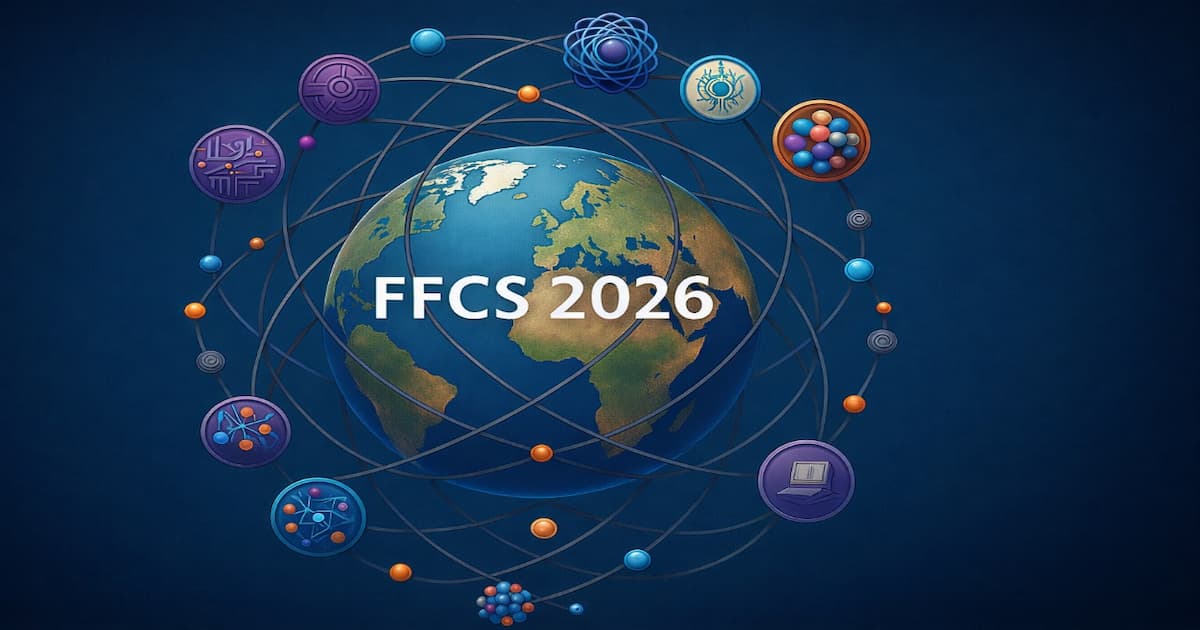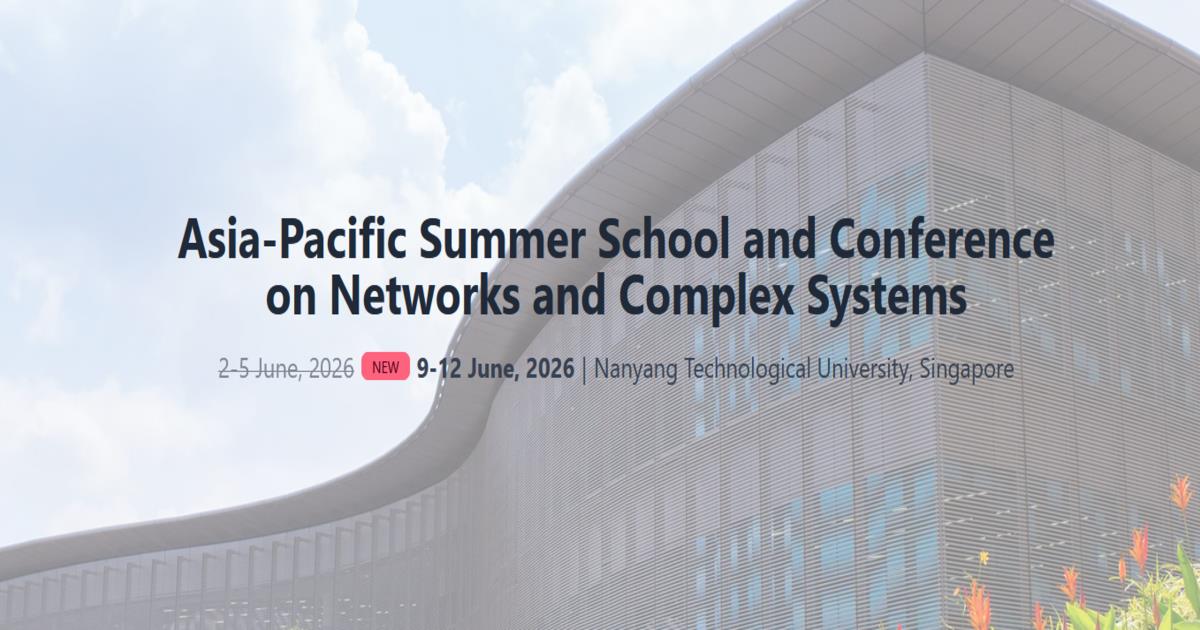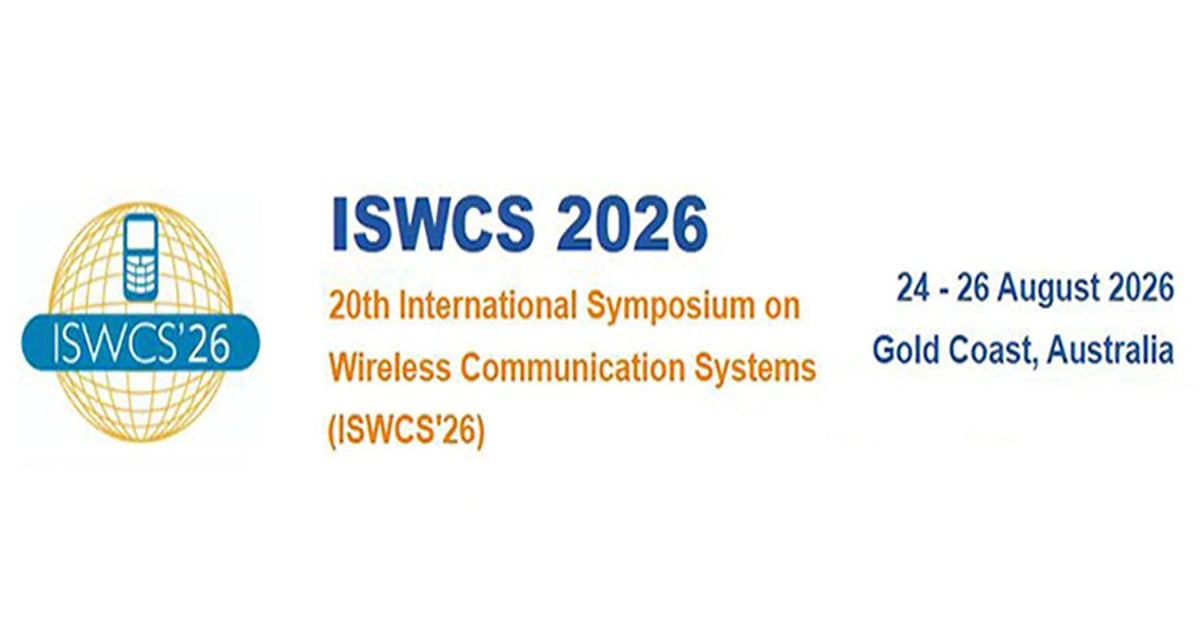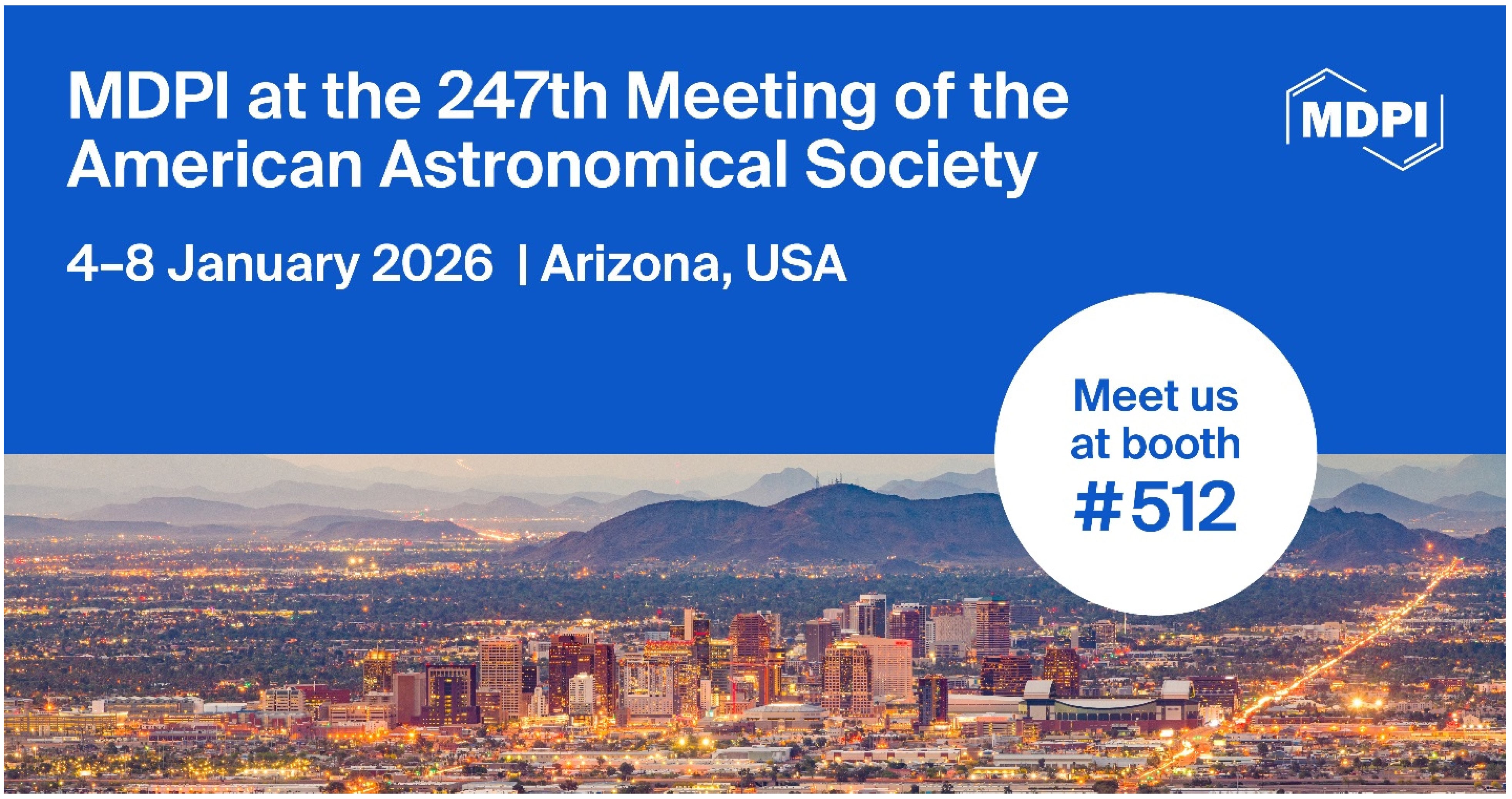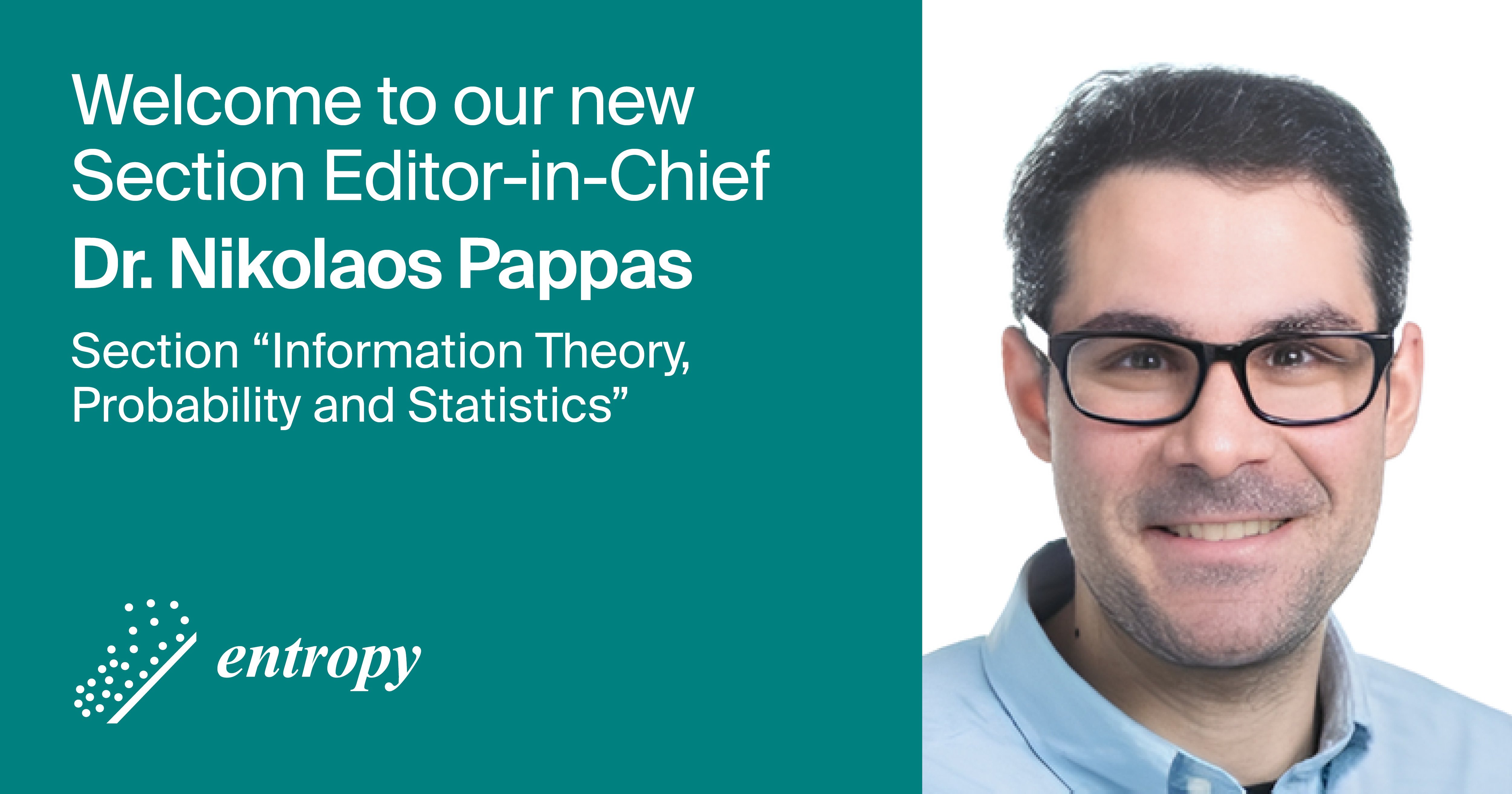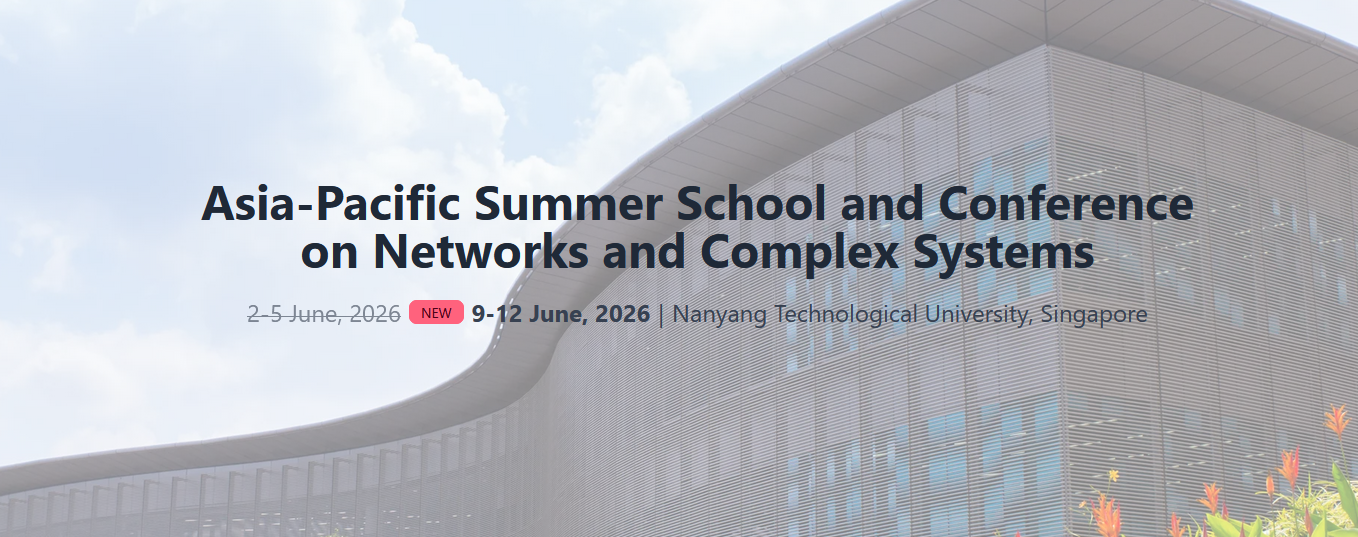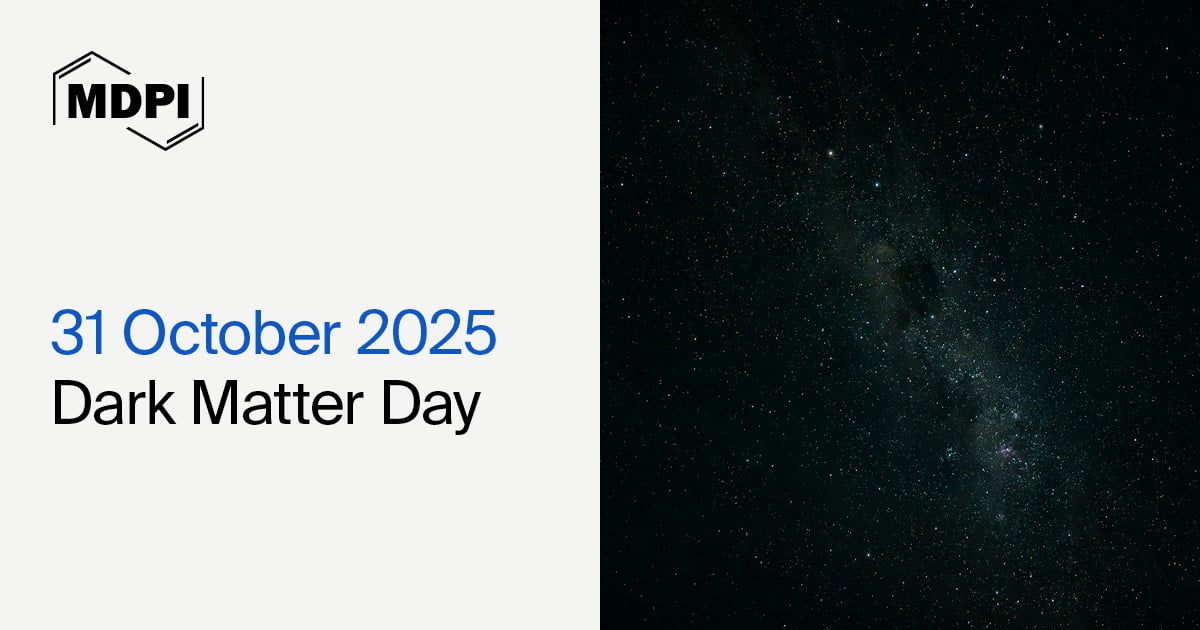- 2.0Impact Factor
- 5.2CiteScore
- 22 daysTime to First Decision
News & Conferences
Latest News & Announcements
Latest Conferences
Propose a Conference Collaboration
Promote and publicise your upcoming conference with MDPI.
All News & Conferences
23 - 27 February 2026
9 - 12 June 2026
Partner Conference
20th International Symposium on Wireless Communication Systems
24 - 26 August 2026
News & Announcements
Meet Us at the 247th Meeting of the American Astronomical Society (AAS), 4–8 January 2026, Phoenix, Arizona, USA
11 December 2025
News & Announcements
Article Layout and Template Revised for Future Volumes
11 December 2025
News & Announcements
Dr. Nikolaos Pappas Appointed Section Editor-in-Chief of Section “Information Theory, Probability and Statistics” in Entropy
3 December 2025
News & Announcements
Asia-Pacific Summer School and Conference on Networks and Complex Systems, 9–12 June 2026, Singapore
28 November 2025
News & Announcements
Entropy | Research by the Shannon Award Winners
13 November 2025
News & Announcements
MDPI Launches the Michele Parrinello Award for Pioneering Contributions in Computational Physical Science
6 November 2025
News & Announcements
MDPI INSIGHTS: The CEO's Letter #28 - WSF11, Nobel Laureates, Proofig AI, Romania Summit, STM and FBF
4 November 2025
News & Announcements
Dark Matter Day, 31 October 2025
30 October 2025
of 35



